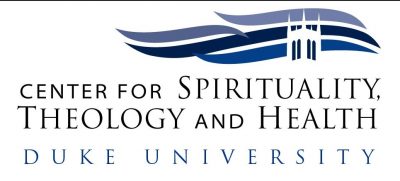Journal of the American Medical Association (JAMA)
This book provides a fascinating look at the role of religion and the use of health services against the background of the current availability of and access to health care across all segments of society. This analysis suggests that the level of religiousness and an individual’s commitment to preventive behaviors and the use of medical services may be a fruitful area of future research….This is an unparalleled resource not only for physicians with an interest in the relationship between religion and health but perhaps even more for those who doubt its significance. All physicians should consider the possibility that something so meaningful to a large number of patients might also be good for their health.
© American Medical Association
Doody Review Services
Patricia E. Murphy, Ph.D. at Rush Presbyterian-St. Luke’s Medical Center
Description: This book handles well the daunting task of providing a comprehensive and critical review of the research conducted between 1900 and 2000 that measures the relationship between religion and various mental and physical health outcomes.
Purpose: The purpose is to lay a foundation for the growing focus on medicine that takes into account mind/body/spirit. The critique of research methods and instruments used in the past is a much needed contribution to this area in which there are both excellent and very inadequate studies. The authors’ review provides a scientific foundation for understanding how religion might impact health.
Audience: Written for medical researchers, health professionals, and religious professionals, the writing style and organization lends itself well to be used as a handbook to focus on topics of particular interest. The authors are both experts in the field of health and research in the area of religion and health.
Features: The book includes a chart of all the research in the field, organized by health outcome, that includes information about the design of the study and the measures and statistical analyses used along with a score for the quality of the study. It also provides a review of some of the religion/spirituality instruments most frequently used in research.
Assessment: This is an excellent book that can give those who are interested a solid basis for assessing the merit of inclusion of a focus on spirit in the practice of medicine. It provides the researcher a direction that might help avoid pitfalls of the past. The writing is interesting and inviting so that the lay person could also benefit from exploring its contents.
©Doody Review Services
New Yorker Magazine
Jerome Groopman, M.D., Chief of Experimental Medicine at Boston’s Beth Israel Deaconess Medical Center, and a Professor of Medicine at Harvard
Is religion good for you? In a monumental new work, “Handbook of Religion and Health” …[the authors]… subject that popular assumption to rigorous analysis. They review and evaluate some sixteen hundred twentieth-century studies and articles concerning the impact of belief on health. Their conclusions are not entirely encouraging: they suggest that although the relationship between health and spirituality is clearly worthy of serious study, much of the research done in the field to date has been shoddy. Koenig and his collaborators also go to great lengths to educate the reader about negative effects of belief and orthodoxies, which, in the current cultural climate, are rarely mentioned, such as the fear that disease is punishment for sin, and that assistance is preferably derived through miracles rather than through medicines.
©New Yorker Magazine
First Things
See review in November 2001 issue by Paul R. McHugh, Psychiatrist-in-Chief at Johns Hopkins Hospital
